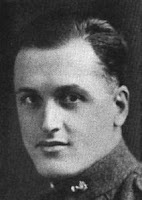In 1857 he became the first editor of the Atlantic Monthly (still running today), a post he held until 1863, after which he spent the next ten years editing the North American Review, which was the first literary magazine in the US, founded in 1815. Also known for his political views, he would later serve as minister to Spain (1877-1880) and ambassador to Great Britain (1880-1885).
The hymn texts now attributed to Lowell were mostly not intended as congregational song, but were excerpted and adapted by various hymnal editors over time. Lowell first appears in Julian's Dictionary of Hymnology in the 1907 edition (entry seen at the first link above), where Julian says that Lowell wrote "no hymns." Today's hymn was first adapted for singing by W. Garrett Horder in his Hymns, Supplemental to Existing Collections (1896), and apparently had not become sufficiently popular to gain Julian's notice by 1907. However, it would later appear in many twentieth-century collections (163 documented at hymnary.org), before falling somewhat out of favor in the last thirty years or so.
In the 1840s, at the beginning of Lowell's career as a poet, the United States was headed toward armed conflict with Mexico, which he strongly opposed, partly for the reason that it might spread slavery into the newly annexed territory of Texas. In December 1845 he wrote a long poem titled The Present Crisis, believing that the nation stood at a moral crossroads. It was published in the Boston Courier on December 11. More than fifty years later, Horder (followed by many subsequent editors) believed that this poem had something important to say to people of faith beyond Lowell's particular concerns and took several lines from the long poem, rearranging some of them and making the lines more metrical, resulting in the hymn Once to every man and nation.
By the late twentieth century, some editors saw problems with the text. "Man" was no longer considered useful to refer to the whole of humankind (in spite of self-appointed grammar police). Also, some believed that the important choices we face do not happen only once; that we have to make the choice between right and wrong many times in our lives. After being left out of a number of important denominational hymnals, some editors have made further adaptations so that it can be used again. The Welsh tune TON-Y-BOTEL has been the predominant tune matched with this text for most of its life.
To us all, to every nation,
Come those moments to decide,
In the strife of truth with falsehood,
For the good or evil side;
Some great cause, God's new Messiah,
Offering each the bloom or blight,
And the choice goes by forever,
’Twixt that wrongness and that right.
Then to side with truth is noble,
When we share its wretched crust,
Ere its cause bring fame and profit,
And ’tis prosperous to be just;
Then it is the brave one chooses
While the coward stands aside,
Till the multitude make virtue
Of the faith they had denied.
By the light of burning martyrs,
Jesus' bleeding feet we track,
Toiling up new Calv’ries ever
With the cross that turns not back;
New occasions teach new duties,
Time makes ancient good uncouth,
They must upward still and onward,
Who would keep abreast of truth.
Though the cause of evil prosper,
Yet 'tis truth alone is strong;
Though its portion be the scaffold,
And upon the throne be wrong;
Yet that scaffold sways the future,
And behind the dim unknown,
God is standing in the shadow,
Keeping watch above God's own.
James Russell Lowell, 1845; adapt.
Tune: TON-Y-BOTEL (8.7.8.7.D.)
Thomas J. Williams, 1890
New occasions teach new duties, Time makes ancient good uncouth.
They must upward still, and onward, who would keep abreast of truth.
.
Words to live by.
Eight Years Ago: Sarah Flower Adams




